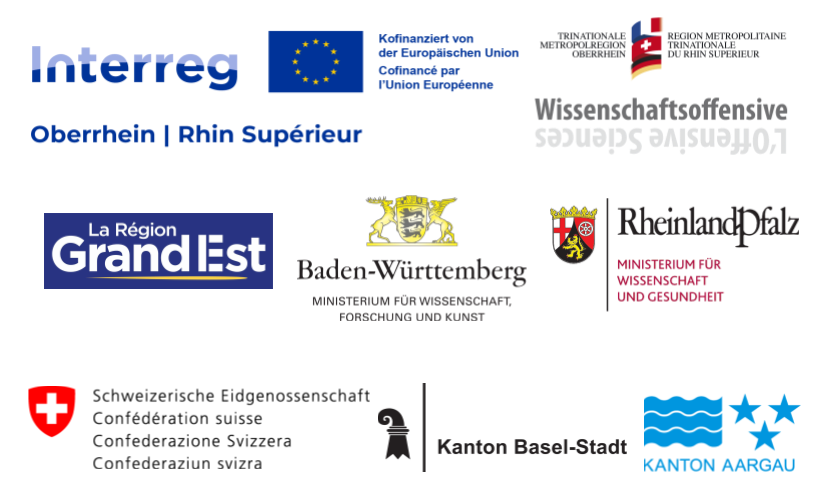
aura.ai
Artificial Intelligence for Cross-Border Mobility
Motivation
The Upper Rhine region offers travelers a wide variety of means of transport, from trains and trams, to buses and electric bikes and scooters. So, in theory, people who prefer public transport and soft mobility can easily get around this cross-border region. In practice, it's a little more complicated: buying tickets for journeys involving several transport services can quickly be laborious. Each operator usually has its own online platform or application, requiring travelers to create a separate account for each service and to identify themselves several times.
Objectives and Methods
An innovative solution could soon remove this obstacle: automatic authentication that respects privacy and is based on passenger behaviour, guarantees an adequate level of security and requiring no extra effort on the part of the user. This solution uses artificial intelligence to recognize and classify the specific mobility practices of each individual and the way they use their phone, so that travelers can be identified accurately and reliably.
Innovations and Perspectives
Within two years, the concepts and software developed could be used as a part of regiomove, a mobility platform in the Karlsruhe area currently being connected to the mobility platform of the Ortenau region, with cross-border connection to Strasbourg. The technology will be field-tested in the KVV.regiomove and Ortenau Mobil applications with the help of Raumobil, the company that developed these applications. Thanks to automatic authentication, passengers will be able to identify themselves easily on various transport platforms and enjoy a high level of user-friendliness. Switching between transportation modes will become fast and simple. The project could therefore be a great benefit for the Upper Rhine region, as it will help to make public transport even more attractive.
Insights into the research project
External content
To use this content (Source: www.xyz.de), please click to Accept. We would like to point out that by accepting this iframes data to third parties transmitted or cookies could be stored.
You can find further information in our Privacy policy.
Publications
2025
- T. Piotrowski, Z. Nochta, M. Karl, and M. Johns, “Privacy-preserving encoding and scaling of tabular data in horizontal federated learning systems” in Proceedings of the 20th international conference on availability, reliability and security (ARES), ACM, Aug. 2025. Available: To Appear.
2024
- D. Monschein and Oliver P. Waldhorst, “Optimizing Privacy-Preserving Continuous Authentication of Mobile Devices,” in NSS 2024: 18th International Conference on Network and System Security, Zayed University, Abu Dhabi, UAE: Springer, Nov. 2024. doi: https://doi.org/10.1007/978-981-96-3531-3_4. Available: https://link.springer.com/chapter/10.1007/978-981-96-3531-3_4.
- D. Monschein and O. P. Waldhorst, “HEJet: A Framework for Efficient Machine Learning Inference with Homomorphic Encryption,” in 2024 IEEE International Performance, Computing, and Communications Conference (IPCCC), Orlando, Florida, USA: IEEE, Nov. 2024, pp. 1–10. doi: 10.1109/IPCCC59868.2024.10850007. Available: https://doi.ieeecomputersociety.org/10.1109/IPCCC59868.2024.10850007.
- F. Stricker, J. A. P. Pérez, D. Bermbach, and C. Zirpins, “FL-APU: A Software Architecture to Ease Practical Implementation of Cross-Silo Federated Learning,” presented at the The 2nd IEEE International Conference on Federated Learning Technologies and Applications, Valencia, Spain, 2024.
- D. Monschein, Z. Nochta, J. A. Peregrina Pérez, T. Piotrowski, O. P. Waldhorst, and C. Zirpins, “Borderless Authentic – Authentication in the Upper-Rhine Area with AI,” H-KA Forschung Aktuell, no. 2024, pp. 14--17, 2024, Available: https://www.h-ka.de/fileadmin/Hochschule_Karlsruhe_HKA/Bilder_VW-PK/Publikationen/Forschungsbericht/HKA_ZH_Forschung_aktuell_2024_web.pdf.
2023
- A. Abouaissa et al., “Borderless Authentic -Authentication in the Upper-Rhine Area with AI,” in URAI 2023: Upper Rhine Artificial Intelligence Symposium, Mulhouse (FR), France: ensisa, Nov. 2023. Available: https://hal.science/hal-04219706.
Status
Ongoing project 01/2024 – 12/2025
Project funding
The aura.ai project is a project of the science offensive of the tri-national Upper Rhine metropolitan region and is co-financed by the European Regional Development Fund (ERDF) as part of the Interreg Upper Rhine funding initiative.
